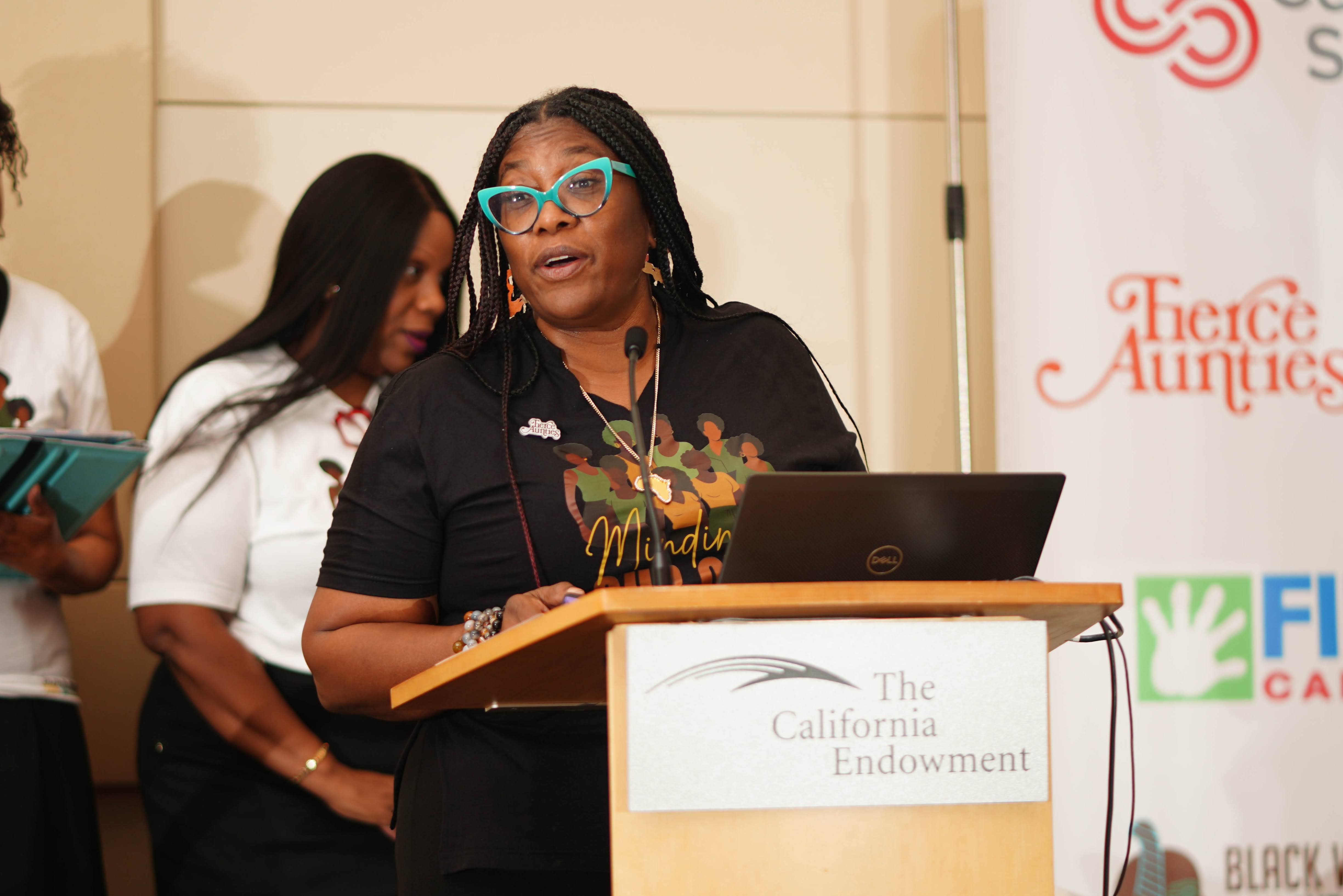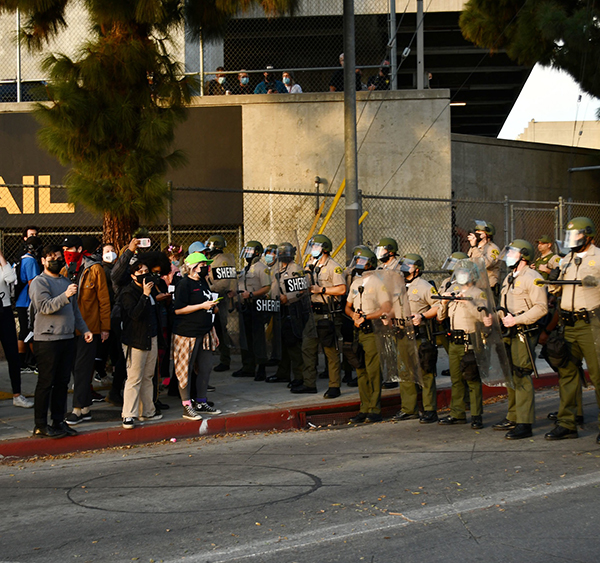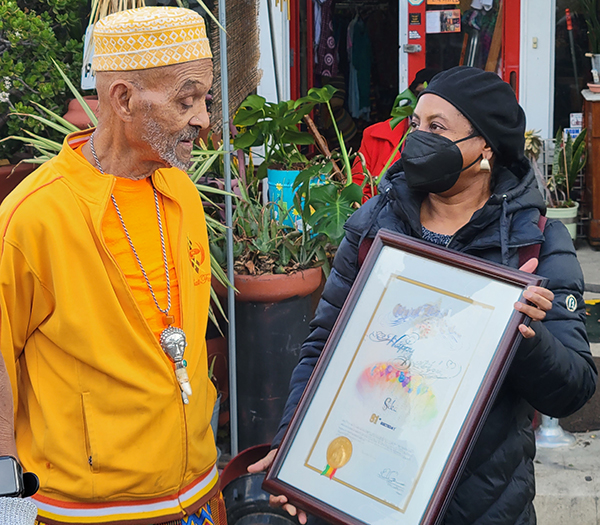Black women confront abortion bans, deadly maternal risks at South L.A. forum

LOS ANGELES — Black women in the United States are likely to die three times more often during childbirth than white women. What makes the statistics even more harrowing is that 80% of pregnancy related deaths are preventable.
Those statistics and others like it were discussed Aug. 7 at the Black Women for Wellness’ 26th annual Reproductive Justice Conference at the California Endowment.
“The Trump administration has rolled back reproductive rights and people are bleeding out in parking lots or and dying in maternity rooms,” Nourbese Flint, president of All Above All, said at the daylong conference. “Accessing birth control is also under attack which leaves our women in danger.”
Black Women for Wellness focuses on harnessing collective power and resources to create meaningful change and improve health outcomes. With reproductive rights under siege in the country, the conference, entitled “Minding Our Own Black Business,” included discussions on raids being carried out against Black and brown immigrants, infertility, menopause, the housing crisis, fibroids, financial help for pregnant women and postpartum mortality in addition to reproductive justice and abortion.
“When I think about reproductive justice, I know it is not just about policy but about power,” said Dr. Tomika Ferguson. “We have to continue to fight from the maternity ward to the voting booth. As for our women who continue to fight for reproductive rights, we are not broken, we are brilliant.”
Since the U.S. Supreme Court voted to overturn the Roe v. Wade decision in 2022, 41 states have some kind of restrictions on abortions and 14 have total abortion bans.
Thousands of pregnant women now must travel to other states to receive abortions including California, which is a protective state.
Other states have rendered abortion care practically unavailable by criminalizing the provision of care after the earliest weeks of pregnancy. Women of reproductive age may live miles from the closest abortion provider, forcing more than 171,000 people to travel outside of their home state to secure access to abortion care.
Attorney generals in some states have threatened to criminally prosecute those who help pregnant people get the care they need and countless other women are being forced to continue their pregnancies against their will.
States have also criminalized abortion care even in medical emergencies where the inability to get an abortion could place the pregnant person’s health, life and future fertility in danger.
Black Women for Wellness has come out to support a number of legislative priorities up for review.
Assembly Bill 551 seeks to expand and improve access to reproductive, sexual and miscarriage care in emergency departments in California hospitals.
Senate Bill 608 seeks to expand access to condoms in schools, prohibit discrimination based on age at retailers when youth purchase contraception and ensure compliance with the Califorinia Healthy Youth Act.
And Senate Bill 636 seeks to address gaps in perinatal mental health care by ensuring timely mental health screenings during and after pregnancy.
“The execution of executive orders have shaken our providers who feel they might lose their medical licenses if they perform abortions,” said Symphoni Barbee, a legislative advocate at Planned Parenthood. “We need to fight back on the federal level.”
The conference ended with power talks from several speakers that covered a wide range of subjects, including the current housing crisis.
“Black women are the fastest group falling into homelessness and they are more likely to stay homeless,” said Joi Richardson, vice president of external affairs and communications for St. Joseph Center. “They are your mothers and sisters. You can’t heal if you don’t have a place to rest.”
With housing costs climbing in California, staying housed has become a huge financial burden for some.
“Most Black women are paying more than 30% of their income to stay housed,” Richardson said.
The housing crunch also has led to unscrupulous transactions that Black women may unknowingly fall into.
“There are predatory lending practices aimed at Black women, especially women with children. Black women are losing their children because they cannot provide a fixed address,” Richardson added. “Black women need permanent, supportive housing.”
Shirley Hawkins is a freelance reporter for Wave Newspapers. She can be reached at shirleyhawkins700@gmail.com.





